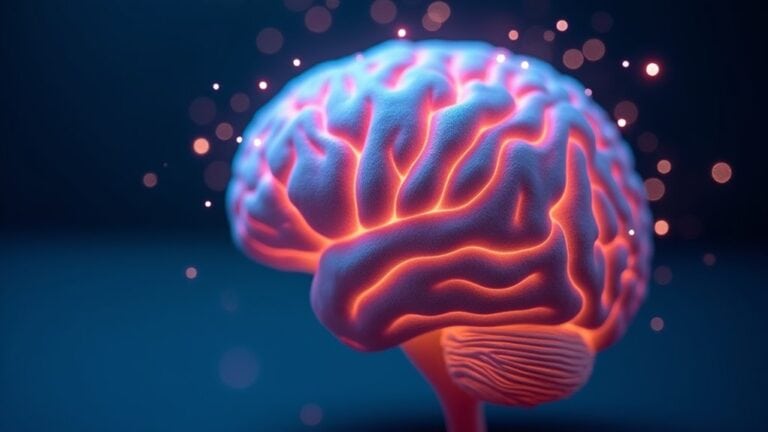Vedic psychology offers a fresh perspective on mental health by blending ancient Indian wisdom with current comprehension. Rooted in texts like the Yoga Sutras and Ayurveda, it views the mind as deeply connected to body, spirit, and environment. Unlike conventional approaches, it highlights balance through self-awareness, meditation, and aligning with one’s true purpose. With rising stress and anxiety, these timeless principles provide practical tools for emotional resilience. The question remains—how can these ideas fit into today’s fast-paced world?
Foundations of Vedic Psychology: Timeless Principles
Rooted in ancient Indian wisdom, Vedic psychology offers a deep and comprehensive approach to grasping the mind, blending spirituality with practical insights for mental health. It draws from timeless wisdom like the Yoga Sutras of Patanjali, which highlight breath control and meditation as tools for spiritual awakening and Inner Peace.
This holistic approach explores the human mind through principles like Dharma, or righteous living, guiding individuals toward mental well-being. The framework acknowledges the layers of consciousness—Manas, Buddhi, and Chitta—providing clarity on thoughts, decisions, and deeper impressions. Through cultivating discernment and detachment, Vedic psychology helps quiet emotional turmoil, fostering balance.
Unlike contemporary approaches, it weaves self-awareness with universal truths, creating a path where mental clarity and spiritual growth align naturally.
Understanding Prakriti: Ayurvedic Insights for Mental Balance
Building on the timeless principles of Vedic psychology, Ayurveda introduces Prakriti—the unique mind-body blueprint that shapes how each person experiences emotions, stress, and mental balance. Rooted in Indian wisdom, this comprehensive approach identifies three doshas—Vata, Pitta, and Kapha—that influence mental and physical health.
Vata governs creativity but could lead to anxiety when imbalanced, Pitta drives focus but can cause irritability, and Kapha fosters calmness but might result in lethargy. Comprehending one’s Prakriti allows for personalized strategies, like diet or lifestyle adjustments, to restore harmony.
The Role of Dharma and Karma in Psychological Well-being
Since mental comfort often feels like a puzzle, Vedic psychology offers two key pieces—Dharma and Karma—that help make sense of inner balance. Dharma, rooted in ancient wisdom, guides individuals toward their righteous purpose, aligning actions with inner truth. When humans deviate from Dharma, mental health issues like guilt or anxiety might surface.
The teachings of Vedic psychology, drawn from Indian scriptures, stress that Karma—the law of cause and effect—shapes psychological well-being. Positive actions foster peace, while negative ones create distress. Ancient texts suggest that comprehension of Dharma and practicing Karma Yoga—detached, dutiful action—can stabilize the mind. This insight and practical approach, though ancient, remains relevant in the modern world, offering a framework to navigate life’s challenges without worsening the imbalances of the three doshas.
Meditation and Pranayama: Ancient Techniques for Modern Stress Relief
Many people today struggle with stress, but Vedic traditions offer proven tools to bring calm back into daily life. Meditation and pranayama, rooted in ancient wisdom, provide a timeless approach to balancing the mind and body.
Techniques like Dhyana and Samyama quiet mental chatter, while Nadi Shodhana and Kapalabhati regulate breath to amplify emotional resilience. These practices, part of a comprehensive system of medicine, help individuals reconnect with their true nature, fostering personal growth.
Through integrating breathwork and mindfulness, they address modern stressors while improving physical health. The transformative expedition of Vedic practices isn’t just about relaxation—it’s a path to deeper self-awareness and lasting inner peace, proving that ancient methods still hold power in today’s fast-paced world.
Integrating Vedic Wisdom With Contemporary Therapeutic Approaches
A growing number of mental health professionals now recognize the value of blending Vedic wisdom with modern therapy. The wisdom of ancient traditions offers psychological insights that complement contemporary approaches, focusing on holistic well-being.
Techniques like physical postures (Asanas) and breathwork address the physical body while promoting mental clarity. The wisdom contained in Vedic texts stresses spiritual practices to reconnect with one’s true self, aligning mind and body.
Therapists integrate these principles with evidence-based methods, creating personalized care that balances emotional and physical health. Through merging timeless teachings with modern science, practitioners help individuals cultivate resilience and inner peace.
This fusion respects cultural roots while adapting to today’s needs, offering a deeper path to healing.
Conclusion
Vedic psychology illuminates mental wellness through the synthesis of ancient wisdom with newfound comprehension. In times of uncertainty, its lessons function as a stabilizing force, steadying individuals. Whether cultivated through contemplation or purposeful existence, these timeless concepts aid contemporary minds in attaining equilibrium. Ultimately, it is about traversing the route that resonates, one stride at a time.





